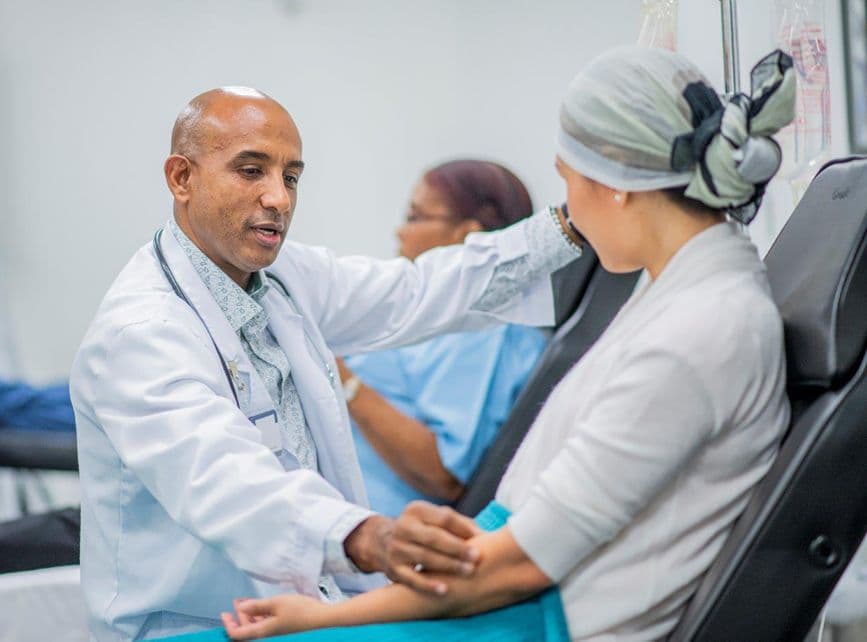Starting with the end in mind - the Innovative Licensing and Access Pathway
The Innovative Licensing and Access Pathway (ILAP) will smooth the process by which innovative new medicines are developed, speeding their progression from clinical trial through to the NHS, bringing significant benefits to patients.

Leaving the EU means the UK needs new pathways for the licensing of medicines. It’s also been an opportunity to design such a pathway that can account for the extremely high levels of innovation in medicines, from adaptive pathways to the use of real-world evidence and informatics. In April, we’ll launch our new strategic plan for 2021-26 at NICE, one of the priorities of which is rapid, robust and responsive technology evaluation. The new ILAP, co-developed by the Medicines and Healthcare Products Regulatory Agency (MHRA), NICE and the Scottish Medicines Consortium (SMC), is a great example of this.
ILAP is a truly exciting development with the potential for major benefits for patients, the NHS and the life sciences industry. It aims to deliver safe, early and financially sustainable patient access to medicines by providing a mechanism for its partners to work together and to support the companies developing them.
Mechanisms of support may include advising on clinical trial designs to streamline the efficient development of evidence required for licensing and health technology assessment. Other options include expedited licensing and access routes and discussions on commercial and managed access issues. For each product in the ILAP, a roadmap will be developed detailing the support that ILAP partner organisations will provide as it progresses through development to access.
To enter the pathway, companies apply for the Innovation Passport designation, and will be assessed against three criteria by the ILAP Steering Group, comprising members from all partner organisations. This unique feature of the ILAP – to have the regulator and health technology assessment agencies jointly granting the Innovation Passport designation – means that all will be in the process from the outset.
The first Innovation Passport has already been granted to Belzutifan, a treatment developed by MSD (UK) for adults with von Hippel Lindau disease, a rare genetic disorder that causes cancer.
Within ILAP, NICE will still apply its evaluation framework and make fully independent recommendations on whether products should be available to NHS patients. The work supporting ILAP products should allow companies to develop and submit well-evidenced value propositions such that products gaining a marketing authorisation from the MHRA have a good chance to also be recommended in NICE guidance.
Although it’s still early days, significant progress has been made and working with our MHRA and SMC partners has been especially rewarding. Beyond the formal partners, there is also support for ILAP from across the healthcare sector.
For NICE, it also gives us a fantastic opportunity to build on other initiatives, such as our coordination of the highly successful Research to Access Pathway for Investigational Drugs for COVID-19 (RAPID C-19) collaboration that ensures swift access to medicines shown to be useful in treating COVID-19. RAPID C-19 has inspired both the principles and processes of ILAP. Our Commercial and Managed Access function also works very closely with NHS England and companies to facilitate patient access, and such work will be critical in meeting our early patient access ambitions.
While the ILAP is currently focused on medicines, there are also plans for us to develop robust and responsive methods and processes for the rapid evaluation of new and emerging medical technologies. This could include medical devices, diagnostics, digital health technologies, genomics and ‘hybrid’ technologies. Watch this space for developments!
Nick Crabb is Programme Director in NICE’s Science, Evidence and Analytics Directorate and Meindert Boysen is NICE’s Deputy Chief Executive and Director of the Centre for Health Technology Evaluation.